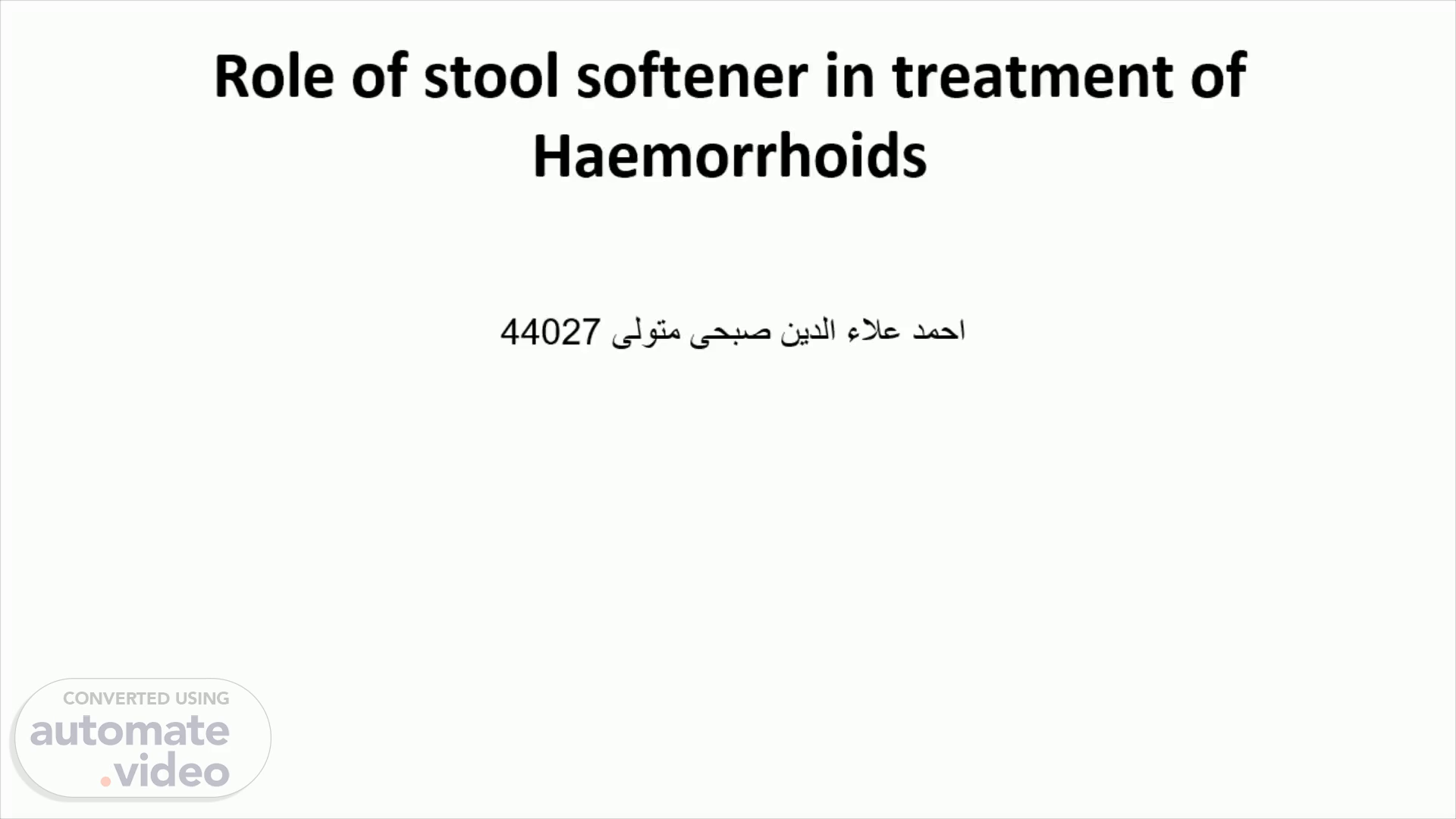
Role of stool softener in treatment of Haemorrhoids
Scene 1 (0s)
Role of stool softener in treatment of H aemorrhoids.
Scene 2 (8s)
Hemorrhoids may be prevented, or at least have their symptoms lessened by drinking plenty of water each day and taking an occasional stool softener if necessary. A softener, not a laxative. Softeners work by drawing normal body water into the stool, allowing for a soft, “fluffy” bowel movement. Any over the counter preparation will do. Some contain synthetics such as methyl cellulose. Others contain fiber. No matter your choice of softener, the occasional hard stool can be helped with a stool softener and an adequate daily water intake. Laxative use should be avoided. Regular use may cause dependence on the laxative and you may find it difficult to have a b.m. without a laxative..
Scene 3 (1m 52s)
Laxatives force the stool to come out, and frequent consumption may cause the veins of the rectum and anus to bruise and swell, making them vulnerable to infection and inflammation. Regular use will make you a dependent, to a point that you may find it difficult to do your business without a laxative..
Scene 4 (2m 26s)
Bulk-forming laxatives and stool softeners are the safest to use and are the most effective in treating constipation. Avoid those that stimulate or simulate contractions, as this will only worsen your hemorrhoids..
Scene 5 (2m 50s)
Stool softeners are used on a short-term basis to relieve constipation by people who should avoid straining during bowel movements because of heart conditions, hemorrhoids, and other problems. They work by softening stools to make them easier to pass..
Scene 6 (3m 24s)
Stool softeners are gentle enough to prevent constipation with regular use. However, they’re the least effective option for treating constipation. They’re best for people with temporary constipation or mild, chronic constipation..
Scene 7 (4m 12s)
Soft Stools is Key Strategy To prevent or minimize hemorrhoids, as well as constipation, stool softeners are sometimes necessary. Stool softeners bring water found in your body into your stool to soften it and make it easier to pass. Also, softeners decrease constipation and the pressure put on your hemorrhoids. Soft stools are key when it comes to hemorrhoids and constipation..
Scene 8 (4m 44s)
When shopping for over-the-counter and natural stool softeners, they may contain: Methyl cellulose Fiber Docusate sodium Senna (a laxative) Phenophthalein (a laxative) Aloe vera Mineral oils Bran Psyllium Plantain No matter which stool softener you select, you need to make sure to stay hydrated. Drink eight to 12 glasses of water every day. This helps soften your stool in conjunction with the stool softener. Avoid caffeinated drinks, including coffee, soft drinks, and alcohol because they may cause you to become dehydrated ..
Scene 9 (5m 38s)
Stool softener dosage depends on various factors, including age and form. For example, an adult should take 200 mg of docusate orally per day, but can take up to 500 mg. Stool softeners are for short-term relief only. They can have side effects, including diarrhea, or nutrient loss, if used habitually. You may also feel weak and nauseated if you excessively take stool softeners..
Scene 10 (6m 30s)
Stool softeners do not directly stimulate bowel movement, but they are used to prevent straining in the toilet, which is why they are highly recommended for hemorrhoids patients. Stool softeners tend to more helpful and safer than laxatives. Short- term use of stool softeners to treat hemorrhoids and constipation does not become a habit or cause damage to your intestine or colon..
Scene 11 (7m 19s)
Stool softeners are available in various forms, including: Capsules Tablets Liquids Take the stool softener in the morning or when you get home from work or early in the evening, as it begins to work within just a few hours. Carefully follow the instructions on the package, and contact your doctor if you have any questions or concerns..